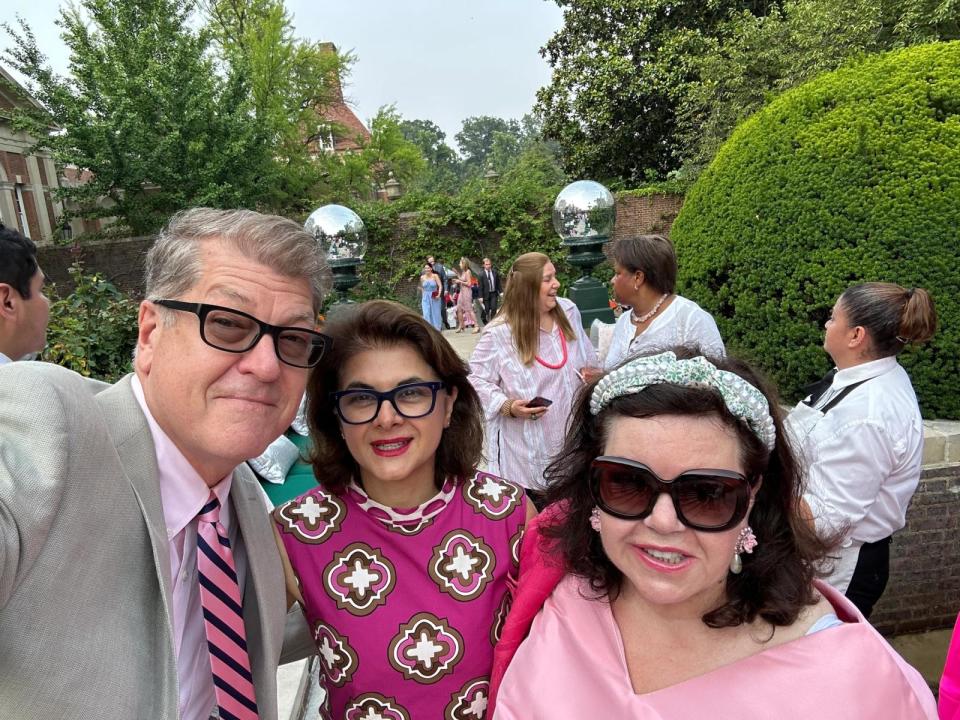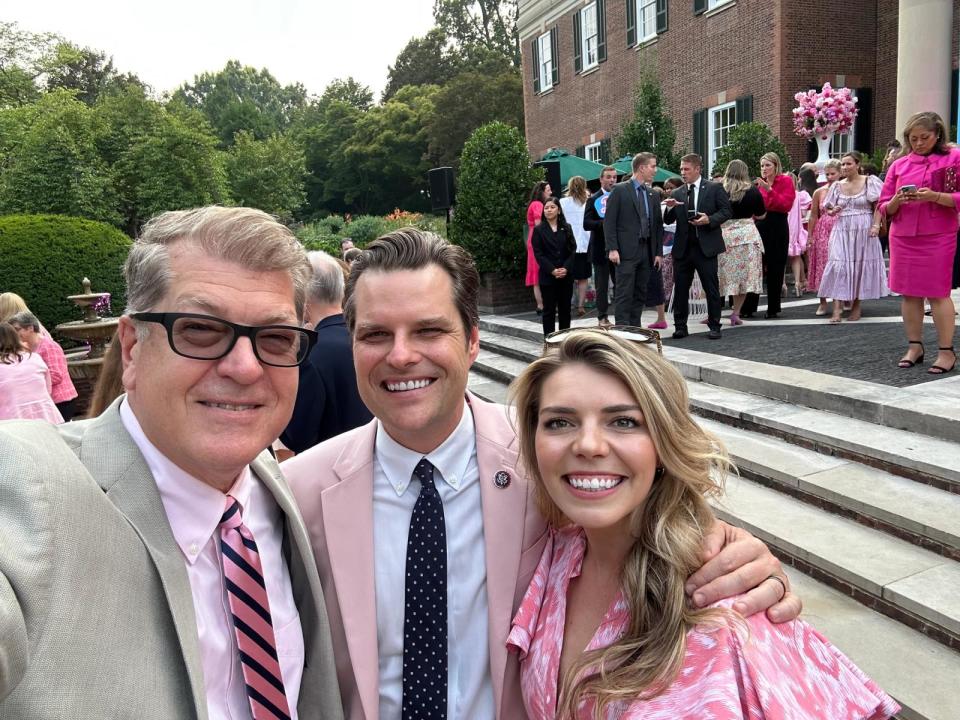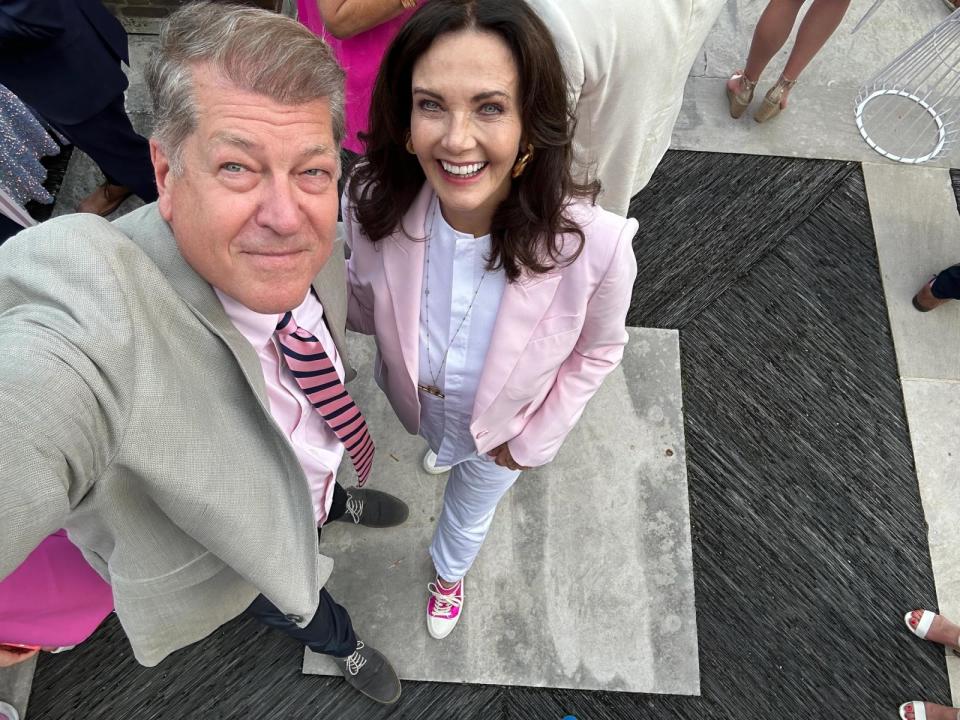Aspen Diary: China, China, China
Day 2
The former acting Acting Director of Central Intelligence, John McLaughlin, mesmerized the moderators and speakers and big donors and special guests of the Aspen Security Forum with a disturbingly excellent magic show Tuesday. “Merlin” McLaughlin’s sleight of hand with ball, rope, and cards humbled the jaded, hyper-rational national security audience at former Democratic Congresswoman Jane Harman’s magnificent Aspen mountainside home. They included British Foreign Secretary James Cleverly, French National Security Advisor Emmanuel Bonne, US Ambassador to the United Nations Linda Thomas-Greenfield, Intel CEO Pat Gelsinger, billionaire businesswoman and former Secretary of Commerce Penny Pritzker, Kenyan National Security Advisor Monica Juma, and many others VIPs.
I start with this vignette of the evening because McLaughlin’s performance was the only time today when China wasn’t mentioned. I think it’s important for know-it-alls to be reminded that they don’t actually know it all, and in a backhanded way, McLaughlin’s lesson was apt tonight and reminded generals and admirals, diplomats, foreign policy wonks and journalists to beware of bias and their own certainty about things.
On stage earlier, however, China simmered in every interview and presentation. Aspen Security Forum Executive Director Anja Manuel opened the forum saying that “we are meeting here at a dangerous time for foreign policy, when war between great powers seems dangerously real and possible.” She then said some great powers were “acting badly” and then named those powers, “China and Russia.”
In the first interview of the day, NBC’s Courtney Kube pushed US-Indo Pacific Command chief Admiral John Aquillino to outline how much of a threat China represents on his strategic dashboard. He answered that China pretty much dominates his problem list. He said he took Xi Jinping at his word when the Chinese leader told his command staff to be prepared to take Taiwan by force by 2027. Aquillino, a graduate of the Top Gun air fighter school, said that he works hard every day to keep China from getting what it wants in the region.
Second up was Juma, the National Security Advisor to the president of Kenya, in conversation with the BBC’s Sarah Smith. China came up in that riveting conversation too, with Smith saying that it seemed “nakedly obvious” that a lot of America’s new found interest in Africa is in order to compete with China’s growing economic footprint and ties with African states. Juma pushed back, saying the U.S. had had a long relationship with the African continent. She said that while China had invested heavily in the region, the major debt loads that many countries have with China, including Kenya, are getting them to explore alternatives to Chinese debt financing.
Finally, NBC’s Andrea Mitchell pushed US Ambassador to the UN Linda Thomas-Greenfield on how America and China are squaring off over big issues at the UN. Thomas-Greenfield didn’t demonize China, but did share with me that there’s a relentlessness in the Chinese focus on their interests, and a disregard for what “rules of the road” really mean when those interests collide with international law.
The three interviews thus far in the program are well worth watching and cover a great number of other topics -- but it is interesting that the topic of China runs through them all, or did so today. I will be interviewing Chinese Ambassador to the US Xie Feng today, and I’ll get his response to a number of these concerns. Here is the full schedule -- and yep, I’ll also be moderating sessions on the Middle East and America’s CHIPS gambit.
I need to mention another thing that just hit me in the gut on a personal level. Manuel, the executive director of the Aspen Security Forum and a business partner of Condi Rice, Bob Gates, and Stephen Hadley, opened the forum referring to French freedom fighter and philosopher Marc Bloch’s criticism of French officials who thought they were safe because of the Maginot Line. The Nazis worked around the barrier, and Bloch wrote that the French establishment “had a lack of imagination. They were incapable of thinking in terms of a new war.” Manuel called on the group to heed his warning, and imagine what could come, and to look over the horizon.
Bloch was one of the Jewish intellectuals who the Rockefeller Foundation tried to save as the Nazis rose to power. At that time, some thinkers and doers at Rockefeller, which at that time was focused on building global public health networks, believed that many top intellectuals were in real danger. Rockefeller saved many lives with US and Canadian visas and professorships. Bloch got a visa but he wouldn’t leave France without his entire family, including six children. He was caught and executed by firing squad in 1944.
I mention the deeper story of Marc Bloch because war and peace — and thinking through the roles of villains and heroes — can and should be uncomfortable. It’s easy to fall into groupthink on conflicts like Ukraine and countries like China, Russia and Iran at a place like the Aspen Security Forum. But the reference of a murdered Jewish intellectual who warns leaders to be more imaginative and a former CIA Director who entertains but reminds people they really don’t know it all are a good start and end to the first day of this forum.
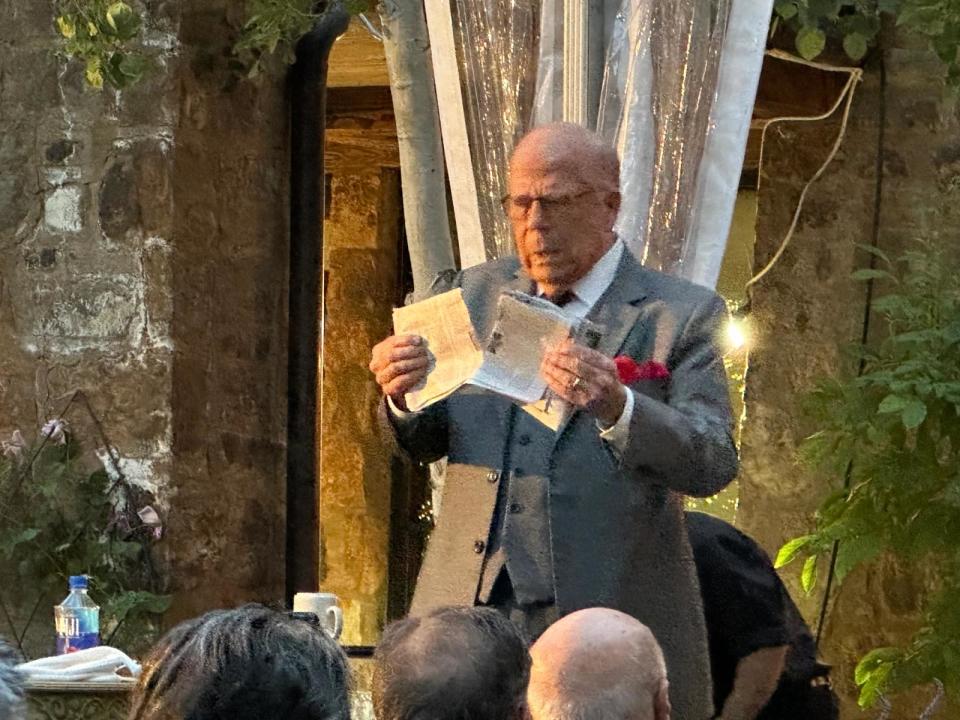
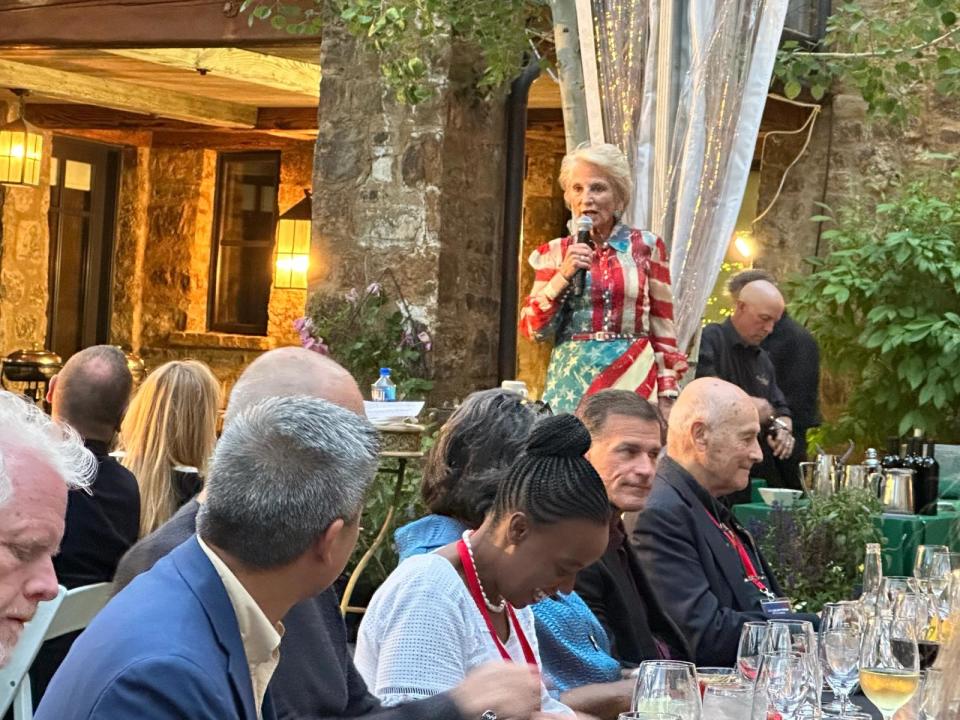
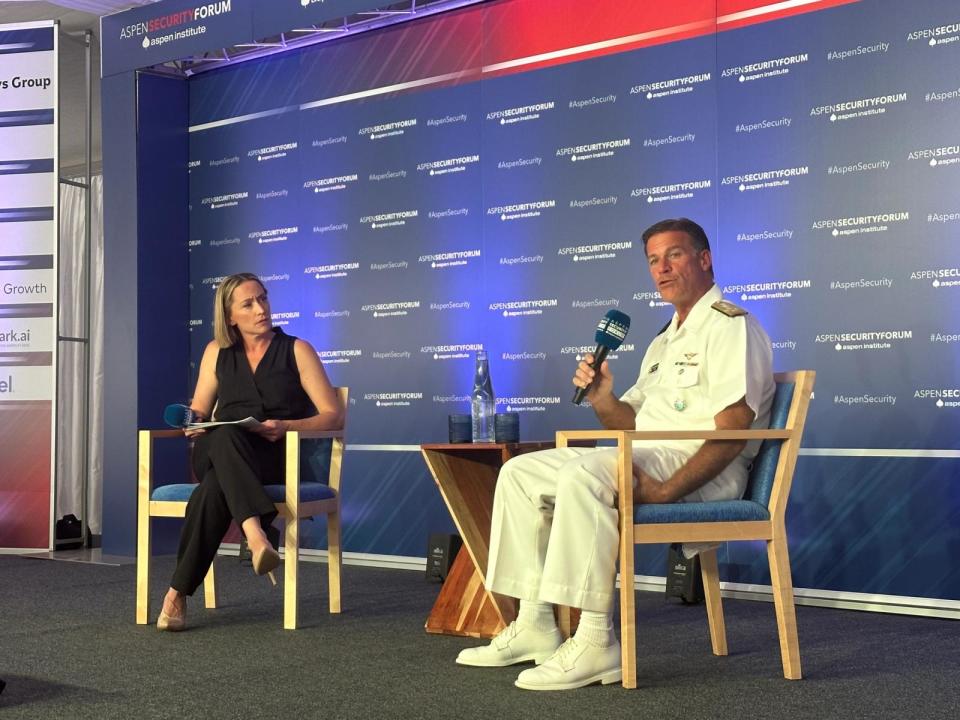
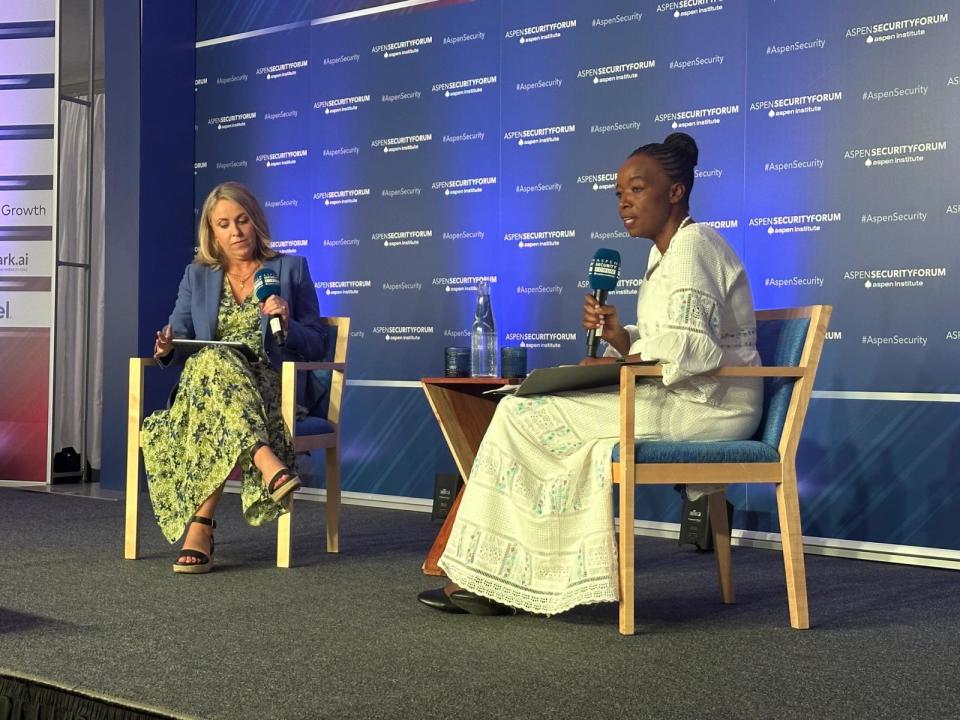
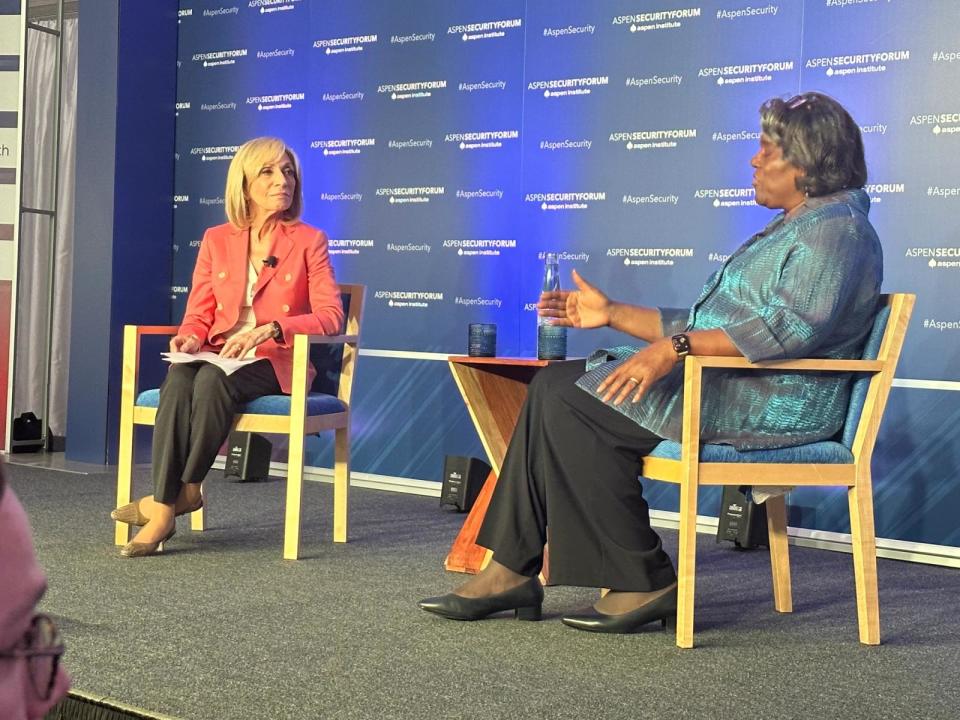
Day 1
The Aspen Security Forum gets going this evening, when the Emeritus Dean of the Harvard Kennedy School Joseph Nye helps open the four days of national security wonkery at a reception high up in the Rocky Mountains. Nye is a perfect opener, as he popularized the notion of “soft power” back in the late 1980s.
The Aspen pre-party last night in Washington was a soft power affair, as many who were soon heading to the forum followed directions to don pink shoes, socks, ties, dresses, sports jackets and more at British Ambassador Karen Pierce’s in advance of the premiere of the movie Barbie Friday. I wondered whether a live action film featuring Barbie and Ken is what Nye had in mind when he described American soft power that works to co-opt other nations, rather than coerce them. While the film has its limits — Vietnam has banned it because it features a goofy map that appears to give China sovereignty over the South China Sea — maybe the Barbie will create some opportunities. Tomorrow in Aspen, I’ll be interviewing the new Chinese Ambassador to the US Xie Feng. Along with the hard power questions, I’ll ask whether Greta Gerwig’s subversive bubblegum heroine will be seen as friend or foe when she hits Chinese theaters.
In the meantime, hard power was on principals minds’ amidst all the pink. I chatted with Senator Deb Fischer, R-Neb., who has been worried about the declining level of America’s artillery munitions because of huge shipments to Ukraine and production that hasn’t kept up with demand. Senator Fischer, a member of the Armed Services Committee, noted to me that President Biden had finally admitted on July 9th that America is running low in its munitions reserves, which she believes creates a serious strategic vulnerability for the U.S. A hard power issue emerged in a soft power evening, on the eve of the Aspen strategy forum.
I’m on my way to the Rockies Tuesday morning, so stay tuned for this daily diary of the national security ideas, big and small, and the people behind them, gathered in the Aspen.
